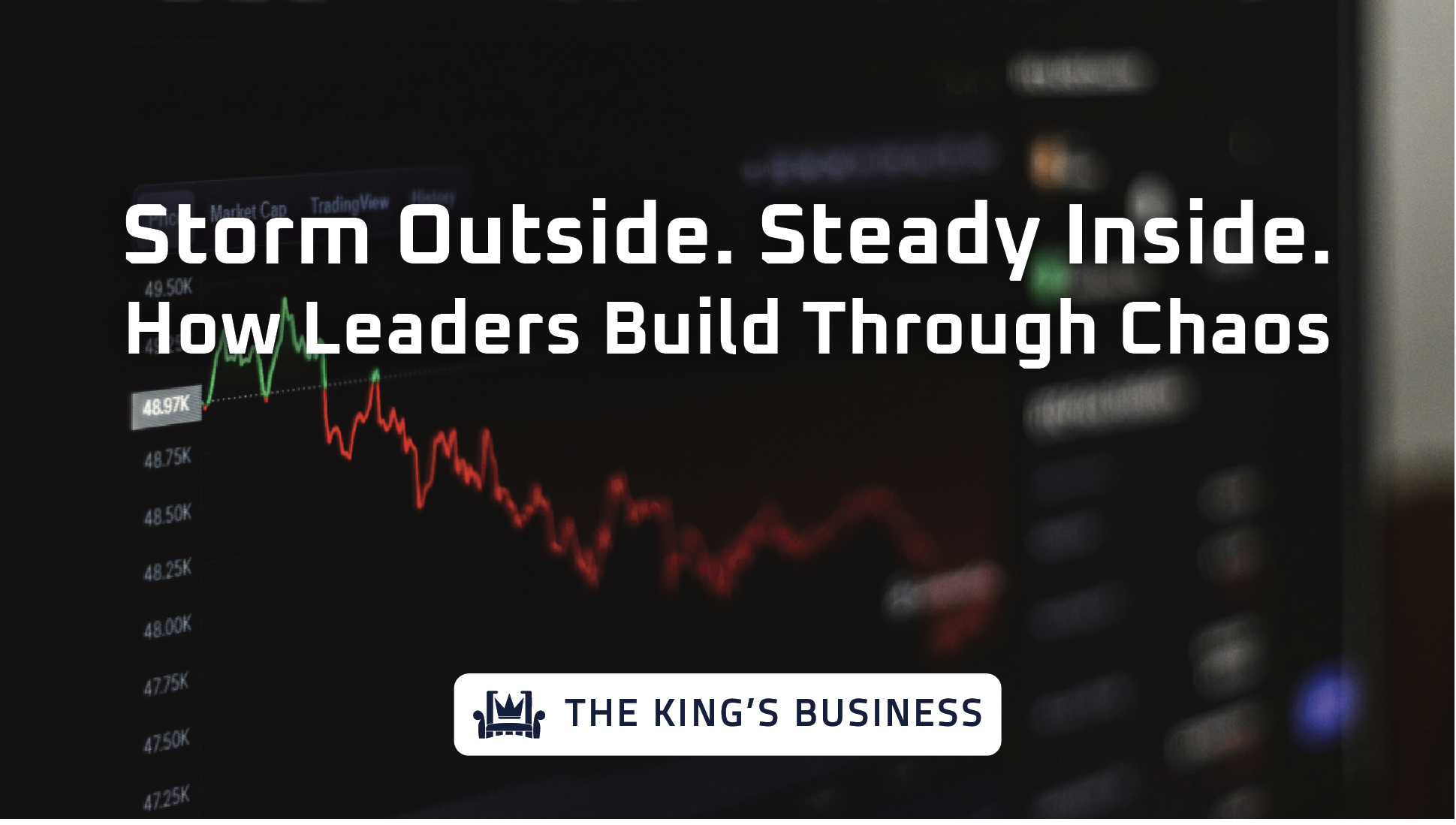April 8, 2025

The VIX—Wall Street’s “fear gauge”—just jumped over 45.

That’s not “uh-oh” territory. That’s “put down the golf club and pick up the P&L”territory.
It’s the highest we’ve seen since the world melted down in 2008 and again in March 2020, when Costco ran out of toilet paper and Zoom was trading like it cured loneliness.
Translation? The market is nervous. But here’s the thing: you don’t run a hedge fund. You run a business. And your job isn’t to react like a trader. It’s to lead with discipline — while everyone else is losing their minds.
But leaders who outlast volatility? They get quiet. They go deep. They build discipline.
You don’t have to predict the future. Just make sure your business is built to handle it. That’s how you stay unbreakable.
The VIX – or Volatility Index - tracks how much volatility investors expect over the next 30 days.
> High VIX? Markets are jittery.
> Low VIX? Everyone’s pretending nothing bad ever happens.
It’s basically the mood ring of Wall Street—except when it spikes, it’s not love in the air… it’s panic selling, falling prices, and a whole lot of “should we have built something more stable?”
This isn’t the time to build a new product, open a second location, or drop 20 grand on a new agency you don’t understand. This is the time to:
• Go deep on the things that matter.
• Bring core pieces in-house.
• Stop renting your strategy. Start owning your outcomes.
That’s vertical integration. And no, it’s not just for billion-dollar companies. It’s for the owner who finally says, “I’m tired of being fragile every time the economy sneezes.”
Learn the thing you’ve been avoiding. If someone else “handles it,” and you can’t explain it? That’s a liability, not a luxury. So you need to:
1. Bring one thing in-house
Fulfillment. Content. Pricing. Anything that controls your customer experience or margin.
2. Don’t get emotional. Get operational.
Fear and greed make terrible COOs.
3. Learn from history.
Go back to 2008 and 2020 and try to draw out lessons. What worked during that time? Where was there opportunity you may have missed that others capitalized on? When I was President at an automotive suspension manufacturer, we looked back at 2008 and saw tow trucks spike as there was a huge uptick in repossessions. We saw repair shops pick up in business because more people were fixing and maintaining their vehicles instead of buying new ones.
You don’t have to be fearless. You have to be faithful, focused, and just stubborn enough to keep building while everyone else panics. This is how we lead when volatility spikes: By getting quiet, locking in, and building something that won’t break just because the markets do.